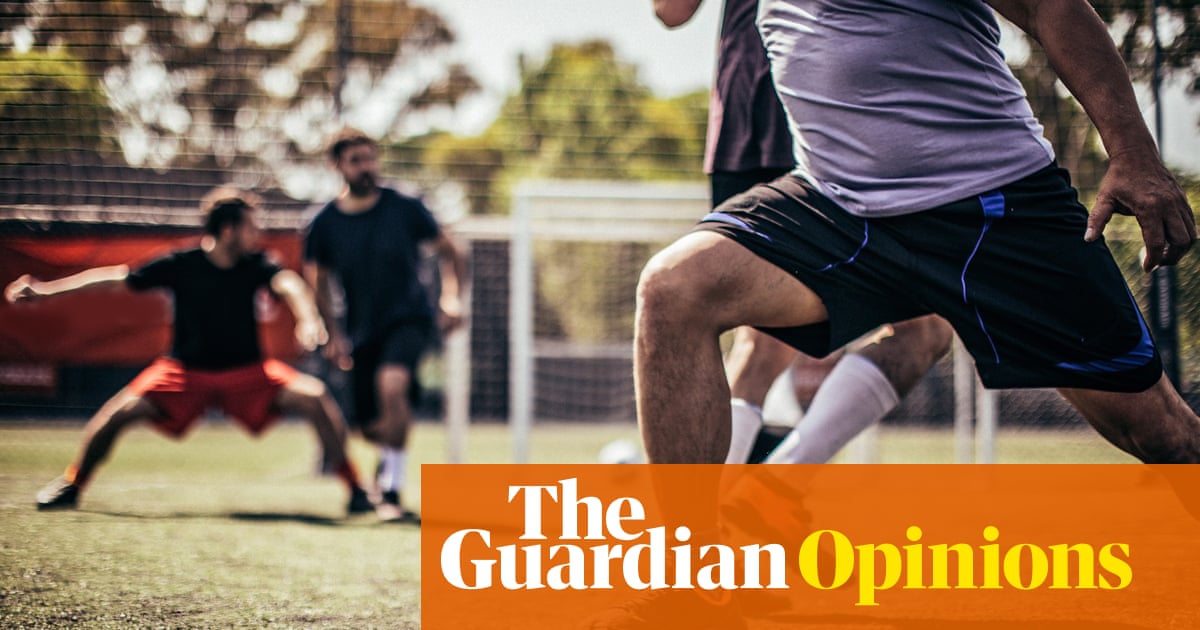
f you’d told me at the end of 2019 – a year I spent DJing in Mexico, the US, China and Europe – that a total ban of clubs, live music and communal singing was imminent, I would’ve told you to check your tinfoil hat. Yet here we are, almost 12 months into a global lockdown that has turned life into a modern-day Footloose, that 1980s classic set in a town where dancing is illegal – albeit with less Kevin Bacon and more hand sanitiser.
I first moved to London from a small commuter town in the Midlands aged 18, hungry for new experiences beyond the tourist traps I’d encountered on school trips. The decade of uninterrupted partying that followed, as both a performer and a punter, made the transition to Covid-compliant weekends in front of the TV almost welcome at first. While the disruption of an album campaign for my group, Ultraísta, was a huge disappointment, at least lockdown provided a break from the relentless pace of trying to balance my career, life and leisure.
Yet I worry about the future talent that the industry is losing due to Covid-19 restrictions. If I was making that independent leap at the age of 18 now, aware of the bleak landscape that the music and nightlife industries currently face, I might well make different choices. Without an income from live performances, DJs, musicians and producers have been forced to confront the reality of the recorded music industry – meagre streaming royalties, dwindling sales and every artist competing for the same few sync and advertising opportunities.
Before the pandemic, this landscape was already weighted heavily in favour of those who could afford to get ahead, either with private funding or personal contacts. But now the stakes are even higher. From the DJs behind the decks to the promoters hovering at the door, 18 months without work will prematurely end the careers of those who can’t afford to wait out the storm.
Society is losing out too. The best nightclubs provide safe spaces for people from all walks of life. Nights out are when lifelong memories are made (or lost) and bonds formed with friends and strangers alike. The transference of energy on a packed, sweaty dancefloor is unlike anything else. On the best nights, everyone in the crowd is under the DJ’s command, their song selections determining a communal journey. This is why the concept of a socially distanced club night, which removes such spontaneity and physicality, just doesn’t work.
After years spent performing as a singer, I released my first dance single under a new name, lau.ra, last year. I’d spent 2019 writing and producing a set of bass-driven tracks aimed squarely at the dancefloor, and I wanted to move people – physically. In early 2020, I hit the ground running with a USB full of bangers and a diary full of shows. Despite my grand touring plans grinding to a spectacular halt when the first UK lockdown was announced on 23 March, I continued to release singles regularly throughout the year, with support from radio, digital streaming platforms, press and fans. On paper, at least, the launch of my new project couldn’t have gone better.
But there was one crucial aspect missing. I produced this music so I could watch people connect with it. Witnessing people on a dancefloor going off to a song they’ve never heard that I bounced out of my studio the night before is a unique thrill, and the part of my job I’m missing most right now. It’s one thing to be told via a weekly streaming report that people are listening to your music all over the world, but it’s not the same as witnessing it with your own eyes. I miss people. I miss that joy. And I miss dancing.
Of course, live streaming has allowed musicians to perform to fans around the world without the need to physically get on a plane. From EZ’s 24-hour live-streamed DJ set in collaboration with Defected (which raised over £88,000 for charity), to Bicep’s masterclass in live electronics streamed from the Saatchi Gallery, these online events have helped DJs reach new audiences who may not have previously gone to clubs.
Nevertheless, the physical dancefloor remains a place of wild and irreplaceable abandon. One of my first clubbing experiences was at Corsica Studios in south London after moving to the big city in 2007: bodies packed wall to wall, grotty toilets, cans of Red Stripe and bass so loud and deep it felt like my knees were about to give way. Nights in that venue made an indelible mark on my soul. We never really knew or cared who was going to be playing; we trusted the venue and walked through the doors most weekends, looking to ignite ourselves on the electricity of the evening, ready to embrace whatever twists and turns it might take.
Watching a DJ play for hours on a computer screen just isn’t as interesting. The club experience relies as much on the crowd as the music. It can’t be replicated sitting on your tod in the living room nursing a warm rum and coke, no matter how good your headphones are. With the recent announcement of a roadmap out of lockdown, 21 June is a beacon on the horizon for many DJs, promoters and club-goers. If everything goes to plan, that day will see a reopening of the UK’s nightclubs and event spaces. I’m tentatively preparing to put down the TV remote, drag myself off the sofa and dust off my dancing shoes. I’ll see you down the front.
Laura Bettinson, also known by her stage name lau.ra, is a producer, DJ, singer and songwriter. Her latest single Dont Waste My Time is out now, while Partisan Records will release the new Ultraista remix EP on 12 March












